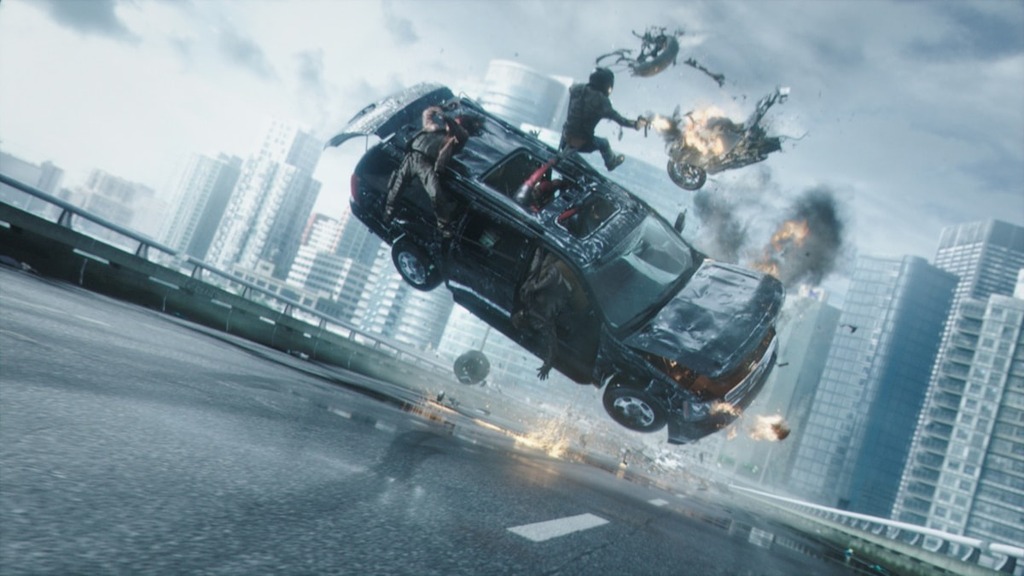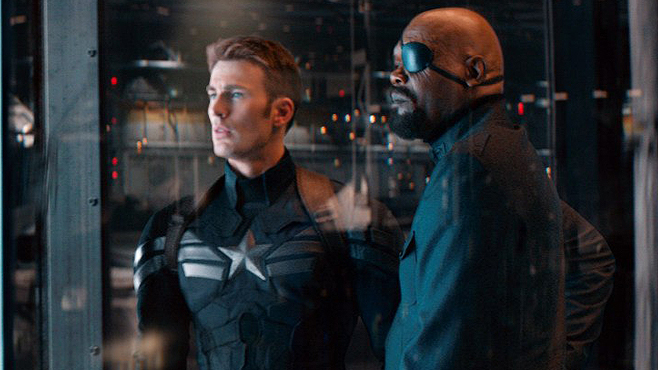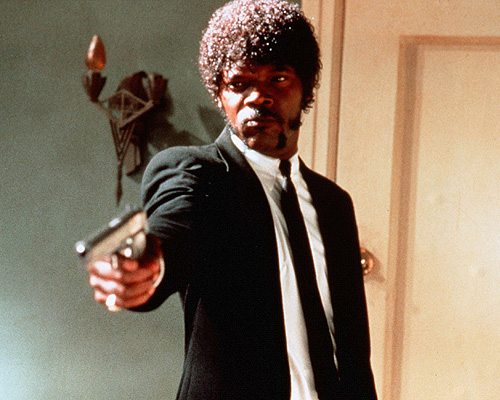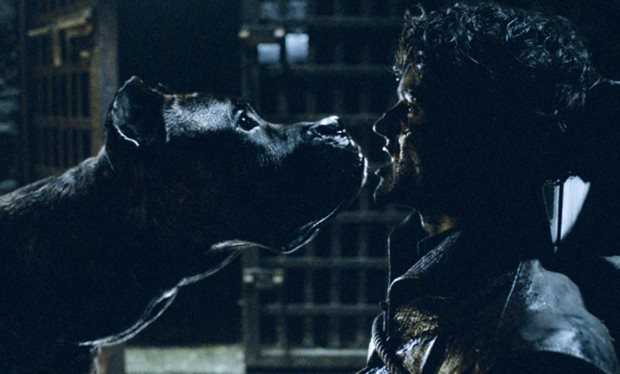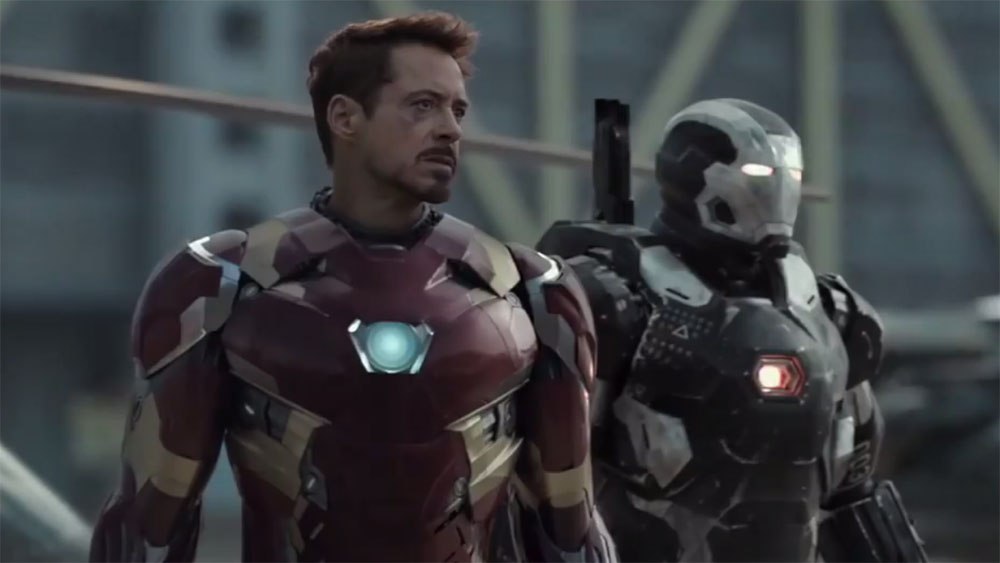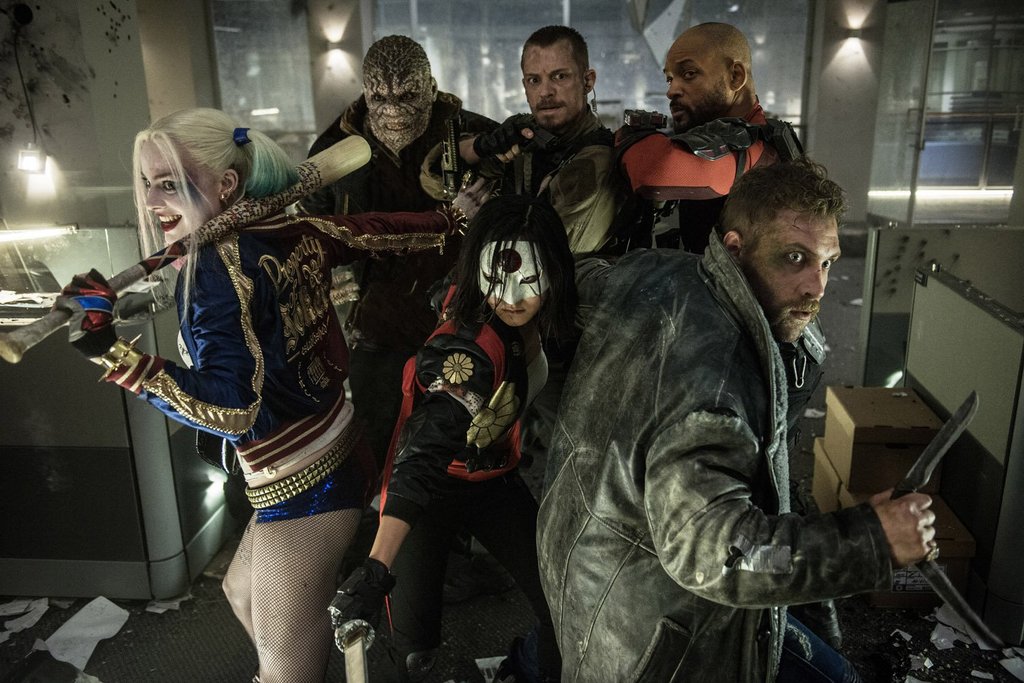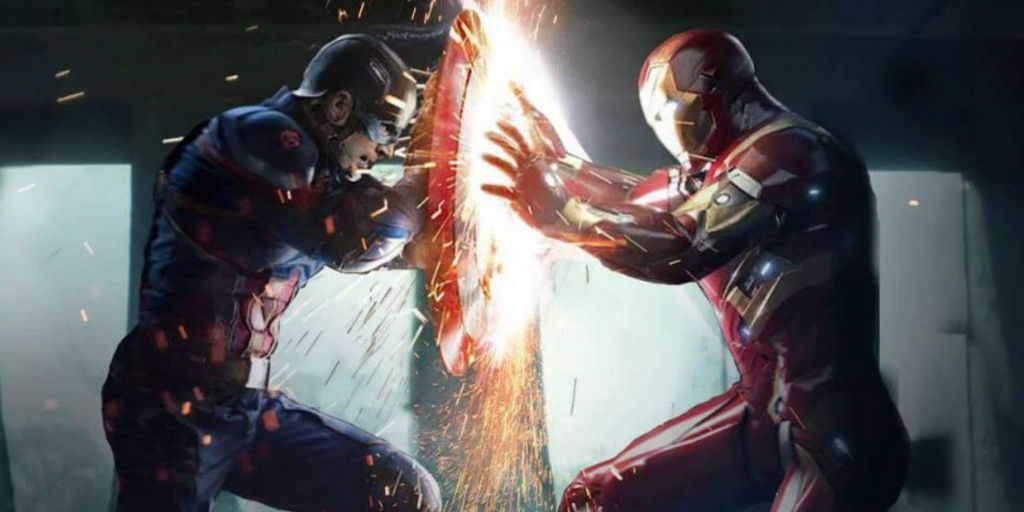- Jun 9, 2012
- 6,488
- 3,399
- Country
- United States
- Faith
- Christian
- Marital Status
- Married
The following represents an intellectual exercise undertaken in an attempt to keep my brain active. There exist a medically sound reason for that, but I won't go into it here. What is germane to this post is my life long love of Marvel Comics and characters, and how they are being displayed on the silver screen. To any who read this I thank you, and I invite you to respond.
On Movies, And Civil War
You can gleam much about a person based on what they write. I knew this truth prior to crafting my Star Trek reviews, posted in various locations elsewhere, that anyone who may read through them would come away not only knowing my opinions of various Trek episodes and Trek related topics, but about me as an individual. It is axiomatic. An author of any examination and review of any topic will invariably insert aspects of his own beliefs and biases into that examination. In context of my Trek threads I always attempted to do this knowingly, willfully, to allow readers to easily understand exactly how I felt.
The above maxim holds however for what people say, particularly when those speaking fail to be consciously aware their listeners may actually be listening. And may remember from one day to the next what was said. With their words people will often reveal an aspect of themselves, some hidden facet of their persona or personality they may not otherwise have wished to reveal. An example.
ESPN radio is host to the Dan Le Batard show. First, Le Batard is aptly named, for he is exactly what the enunciation of his last name implies. That aside, I was listening one afternoon when the topic of the movie “Captain America: The Winter Soldier” was broached. Le Batard voiced his opinion as to how bad he thought that movie had been, calling it terrible. You could hear the derision dripping in his voice as he contemptuously dismissed the film. About two weeks later I was listening to his radio show again and the movie “The Wolf of Wall Street” was cited as part of a discussion. Le Batard praised this movie as having been great, brilliant, so very good. When I contrasted these two comments in context of the movies in question, I found them quite revealing.
“Captain America: The Winter Soldier” was first and foremost, of course, a movie featuring Captain America. Think about that for a moment. Captain America is a character first created during a time in our history when the majority of the American population held and tended to adhere to a sense of true patriotism. He was a spawn of the Greatest Generation, those Americans who were willing to risk their lives to preserve an ideal based on freedom from oppression. Untold thousands of that generation either made the ultimate sacrifice, suffered horribly from the effects of physical and psychological wounds, lost loved ones, or otherwise had their lives irrevocably altered in pursuit of that goal. Then once the war was won those who survived asked nothing but the opportunity to return home and live their lives in peace. To them, and to the majority of their progeny, Captain America represented the embodiment of that philosophy, a character who understood the basic concepts of right and wrong and was willing to fight to preserve the greater good. In contrast, to most modern members of the liberal/progressive left Captain America represents a jingoistic throwback, a figure dedicated to a tradition and ideology both archaic and patriarchal. The complexities of an America First ideology combined with the simplicity of basic right and wrong, embodied by a white male figure which represents both, are anathema to most who hold and espouse liberal ideology.
“Captain America: The Winter Soldier” was a movie which dealt with complex, modern day issues. Government over-reach, data collection on private citizens, corruption in high places, and the slow, methodical means required to subvert the will of a people. In addition it told a compelling, conflict driven story wrapped around the concept of good versus evil, with good ultimately triumphing in the end. Yes, it contained violence, but not the typically favored “Saw” type violence. The violence served the story. The movie also featured some adult language, but nothing one couldn't hear in a typical episode of “The Simpsons.”
Conversely, “The Wolf of Wall Street” was a crude, vulgar, vile piece of crap. It contained scenes which, at least up through the 1980's, would have earned it an X rating. It was anti-capitalist, anti-corporate, promoted hedonism, and championed behavior one would typically associate with a crack infested house of prostitution. There was nothing redeeming, or of any actual social value, in the movie. Yet it received five Oscar nominations.
That Le Batard would hate one movie and love the other reveals an aspect of his character, one I am sure he never intended to reveal. To further that point I will employ an appropriate illustration. Forgive me, but... “Captain America: The Winter Soldier” was a movie you could take your girlfriend's mother to see and not lose any points. “The Wolf of Wall Street” was a movie you could self-stimulate to, if you were so inclined. By putting two and two together anyone could determine which type of movie the ESPN commentator preferred.
The disdain for Captain America isn't limited to one vulgar idiot on ESPN. There exist a group which post videos on Youtube under the title of Cinema-Sins. Or maybe it is just one guy named Jeremy. I don't know. The essence of the videos is to review movies in regard to the mistakes found within. The review done by Cinema-Sins for “Captain America: The Winter Soldier” was painstaking in its mindless ridicule. It was petty, childish, vapid, and smacked of Little Miss Safe Zone logic. Not to be outdone, Cinema-Sins released a review of the first preview for “Captain America: Civil War.” Seriously, they did a review of a preview for a movie. Lets all say that again. Cinema-Sins did a review of a preview for a movie. Why bother, other than to appease the uncontrollable desire to engage in histrionics over an object you detest? During this video the narrator, which I assume to be the listed Jeremy, goes apoplectic over the fact Civil War would feature the character of General Thunderbolt Ross. The F-Bombs fly as he reaches heights of hysteria wailing about the presence of Ross in the movie. Ok, simpleton jingoism fearing Little Miss Safe Zone Jeremy, this isn't hard to figure out.
Marvel has done an excellent job of utilizing its characters to weave the various movies released together into one flowing pattern, of connecting the stories to tell a grander tale. Those who have been paying attention know that the Hulk is slated to appear in the next Thor offering, “Thor: Ragnarok.” General Thunderbolt Ross was a character featured in the 2008 “The Incredible Hulk” movie. Thus, having him appear in Civil War was an obvious Easter-egg meant to connect one sub-plot of this movie to the overall story arc of future efforts. For those who saw the 2008 version of the Hulk, Ross' sole purpose was to track Bruce Banner down and confine him. His appearance in Civil War is also meant to imply he hasn't given up on that mission, and thus one logical reason for his promotion of the Sokovia Accords.
This is what good storytelling is all about, but apparently that fact is lost on many because, my goodness, we are talking about Captain America. I can feel the righteousness surging through my veins. But given in the case of Cinema Sins is it self-righteousness, release the hounds of ridicule! Against a movie trailer! Because Captain America! We, of course, have seen this tactic employed before in regard to a super-hero character. When was the last time Superman stood for Truth, Justice, and the American Way?
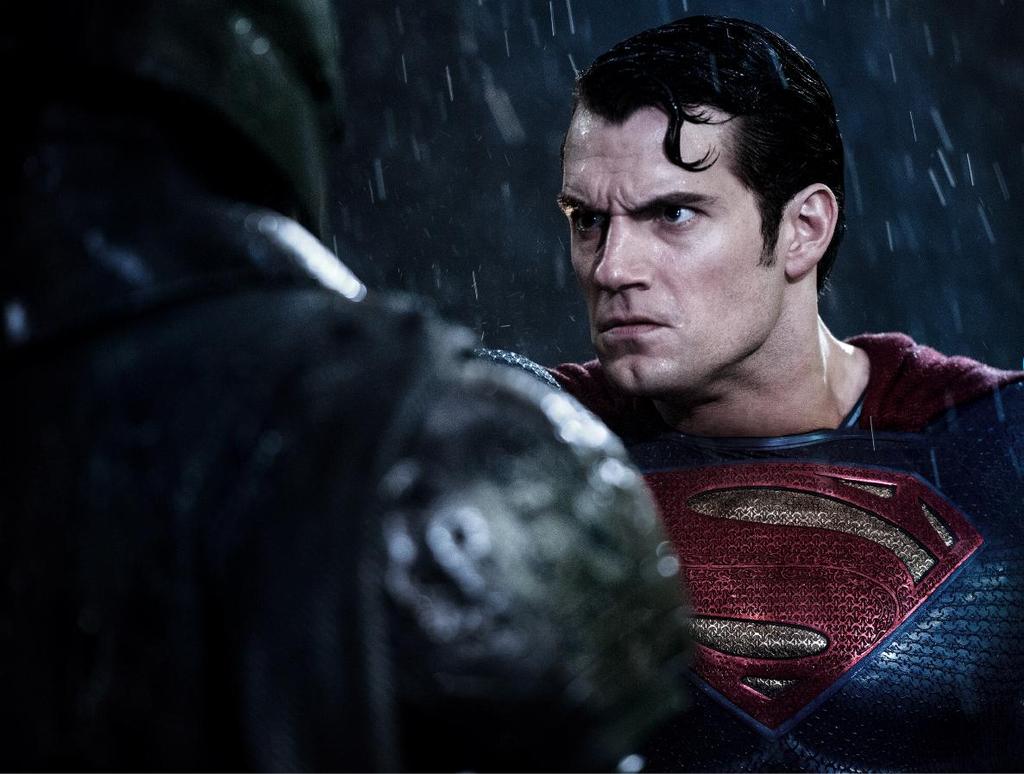
Granted there are two ways to view this. Perhaps Cinema-Sins just doesn't like Marvel movies. Or in particular Captain America as a super-hero. Or perhaps they are pompous blowhards who hold to the theory America is inherently racist, the root of all evil in the world, and any symbol which hails from the bygone years of FDR through “Leave It To Beaver” actually represents a longing to reinstate the Democrat policies of Jim Crow, segregation, and slavery. Personally I lean toward the latter.
I won't post the video from Cinema-Sins, as I don't want to do them the favor. But it is easy enough to find. In addition by now I am sure their review of the actual movie has been posted. I don't need to watch it to know how Little Miss Safe-Zone Jeremy reacted.
There is depth to this issue, as it isn't limited to what people may write or say about a particular movie or movies in general which is revealing. It is also the movies themselves. I am a firm believer in Sturgeon's Law, which holds that ninety percent of everything is crap. Sturgeon was speaking in regard to Science Fiction as a genre, but his theory equally applies to Hollywood and the movies continually gushing from its maw. A few nights ago I saw a commercial for a soon to be released movie entitled “Bad Moms.” My reaction was they should have entitled it “Idiotic Movie We Have Released Ten Times This Year Already.” That people get paid to produce this crap is truly sad. Regardless, Hollywood as a rule is an entity mired in mediocrity. And that is being kind. There is little to nothing of note being produced, the majority either remakes of films gone by or direct steals of some other writers work. Last month I watched the “The Purge.” It was on, which is about all I can say for it. Of course what immediately stood out for me was the fact the central story of “The Purge” was nothing more than a direct steal from a first season Star Trek the Original Series episode entitled “The Return of the Archons.” I wrote a review of that episode, as I always thought the story it presented centered around a novel idea. At least at that time. Likewise both the book and the movie “The Green Mile” was nothing more than a direct steal from a third season Star Trek the Original Series episode entitled “The Empath.” For those who recall, in the TOS episode “The Return of the Archons” the populace of the civilization Kirk and company must interact with are preparing for an event known of as “Festival,” a twelve hour time period during which all laws are suspended and the people can be as wild as they wish. “The Empath” featured a woman who could touch any wounded or sick person, draw those sufferings into herself, and then release them into the void. Does any of this sound familiar? Speaking of familiar, how many times can Lucas and company get away with remaking the original Star Wars movie before a fan stands up and says “Hey! I think we have seen this before.” I won't hold my breath. But the point is well made. Hollywood is mired in counter-productivity. They either keep remaking the same movie repeatedly, steal some other writers prior work because they convince themselves no one will remember, produce agenda driven nonsense, or just repackage prior offerings.
In regard to the former postulate Adam Sandler comes to mind. For a brief time during his career Adam Sandler was funny. Those days are long gone. Yet every eighteen months or so another lame Sandler movie is foisted on the masses, each one almost an exact replica of the preceding offering. They are produced by formula, as opposed to inspiration. That creed applies to at least ninety percent of the movies released each year.
This has often prompted me to question what agenda was behind such formulaic methodology, and what message was being promoted via movies. Most would say the making of and the desire to make money. Fine, I grant that as an obvious factor. However I do not believe said agenda either begins or ends solely with that goal in mind. At the time of this writing the new “Ghostbusters” remake is available for On Demand. I haven't seen it and don't plan on making the effort, but here is my short and succinct review. The Progressive Insurance commercial featuring the ghost of Flo is, was, and will always be far better than the “Ghostbusters” movie itself. That aside, some controversy has surrounded this movie ever since its production was first announced, focused on the fact the producers decided to replace the four male leads with an all female cast. Personally I could care less, as stated I don't plan on watching this movie until it shows up on Stars, if then. However the question remains, why make this change? What point was meant to be made?
That women can be ghostbusters? That women can carry a movie? That women can star in a crappy remake? The real question to ask is why worry about any of this. Women have been starring in movies ever since they invented movies, and women have held leading roles as far back as the time of Theresa Harris. Look her up, you may be surprised. Yet we as the movie consumer are supposed to believe Hollywood was making some form of grand statement now by casting four women to play the leads in the “New and Improved Crappy Ghostbusters Remake.” And if we as movie consumers didn't like it, we were all sexist pigs. However, go to the IMDb page for “Ghostbusters” 2016 and you will find Chris Hemsworth gets top billing (at the time of this writing), while Leslie Jones gets ninth billing. Well, Hemsworth is Thor, which leads me to conclude he was cast in “Ghostbusters” as an offset. In the underbelly of the beast Hollywood producers concluded cash paying movie fans might go see the movie because Hensworth was in it, a summation which serves to defeat the purpose of casting four female stars. Personally I believe this to be true, that some Hollywood producer somewhere decided that in spite of the courageous, noble, and profound gesture of casting all four ghostbusters as women, the movie still required a male lead to carry it. Abundans cautela non nocet.
The true reveal of the “Ghostbusters” remake wasn't that some bold statement was being made by casting four females to star in it. The true reveal is how bereft of originality Hollywood truly is. Anyone who saw the first “Divergent” movie saw the second and third films before they were ever made. Anyone who saw “The Hunger Games” saw the first “Divergent” movie. And anyone who ever read “Romeo and Juliet” knew the underlying story of “The Hunger Games” before it was ever written. I am also an adherent to the adage there is nothing new under the sun. Hollywood proves that adage true year in and year out.
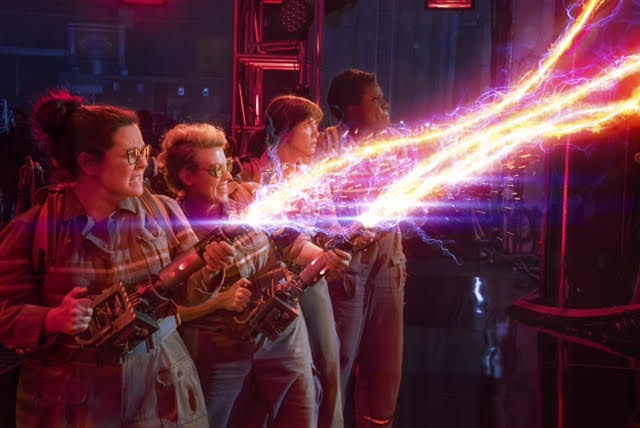
Of course movies fall into different categories. Returning to “The Purge” franchise for a moment, I recently watched “The Purge: Anarchy.” The question of why Hollywood produces a percentage of the movies they do is clearly addressed within the narrative of the second Purge installment. The underlying story is still the same, yet “The Purge: Anarchy” is littered with leftist ideals and characterizations. Evil rich white people pay to have medically ill black people brought to their homes so they can kill them during the purge. Other evil rich white people pay thugs to round up the poor and unfortunate and place them into a “The Running Man” type arena to be killed by yet other rich white people. The minority underground rises up, again in true “The Running Man” fashion, to fight back. The groundwork is laid for the ideal the Purge is nothing more than a legal means for the corporate and political elites to cull the minority population. The third installment of this movie series, “The Purge: Election Year,” was recently released. I haven't seen it but I predict it will feature some Donald Trump like character who will be exposed as promoting the purge in order to make money and sanction the deaths of all those poor and minorities he so desperately hates. And people will believe it, because they saw it in a movie.
Film history is riddled with examples of this phenomena, of life imitating art. It is also riddled with examples where portions of a populace form an opinion on some political or social hot topic based on what they saw in a Hollywood movie. The film “Bernie” serves as the perfect illustrator of that maxim.
Quoted from the IMDB page for the movie “Bernie,” here is how that film was described:
“In small-town Texas, an affable mortician strikes up a friendship with a wealthy widow, though when she starts to become controlling, he goes to great lengths to separate himself from her grasp.”
Sounds charming, doesn't it? A likable guy, falls in with the wrong woman, and works to extricate himself from the relationship. All without hurting anyone's feelings, of course. However...the film “Bernie” was based on the true-life namesake Bernie Tiede, an affable fellow who courted and then murdered 81 year old Marjorie Nugent in 1996 in order to gain access to her money. Nugent's body went undiscovered for nine months following the crime, because after Tiede shot her he wrapped her in a sheet and stuffed her in a freezer, covering her body with potpies and frozen vegetables. Convicted of murder and sentenced to life in prison, his story drew the eye of Hollywood and his case subsequently became the object of a feature film. The director chose to portray Tiede in a sympathetic light, and following the release of the film his case was actually reopened based on evidence as portrayed in the movie. For a time, Tiede went free.
And people want to claim pop culture has no influence on our actual culture.
That movies often promote agendas should be no surprise to anyone. Choose any social issue you desire and Hollywood either has made or will make a movie about it, typically in “China Syndrome” fashion. In addition Hollywood has a habit of assuming the stupidity of its movie audience, and sadly they often assume correctly. Anything which stars either Jim Carrey, Will Ferrel, or Seth Rogen is all the proof required to support that claim. “The Interview” was the ultimate embodiment of low-brow, low-class, crude, vulgar, and infantile humor. Using that movie alone as a benchmark, the question then becomes what spawn of Hollywood is truly worth the effort, and for us the cash paying consumer truly worth viewing.
Before I address this question I will define a number of movie categories derived with deference to and in context of Sturgeon's Law. Try this as an experiment. For those of you who have On Demand, or some other movie streaming service, pull up the list of free movies and just look around. Currently On Demand is carrying a few top tier movies in the free listings, movies such as “Iron Man 2,” “Thor,” “The Avengers,” “The Hunger Games,” and all the “Star Wars” movies. But the remainder comprise a true plethora of crap. One has to wonder how a movie such as “Cherry 2000” or “Hot Tub Time Machine” ever got made. But ignoring that question for the moment, movies can, in my opinion, be placed in one of the following categories. Genre movies, such as the “Star Wars” series, the “Star Trek” reboots, “World War Z” or the “Resident Evil” series, and the “Hunger Games-Divergent” series. Agenda movies, such as the previously cited “The Wolf of Wall Street,” and including but not limited to “The Witch,” “Avatar,” “Sinister,” “The Day the Earth Stood Still,” and “The Danish Girl.” Remakes such as “Tarzan,” “Ghostbusters,” and “Rogue One.” Crap movies for Those Who Don't Know Any Better such as “The Shallows,” “The Fifth Wave,” “Bad Moms,” and “Whiskey Tango Foxtrot.” Kid's Movies, such as “Finding Dori,” and Never-Ending Sequel series such as “Teenage Mutant Ninja Turtles.”
In context of these categories a few quick evaluations of recent movie fare. “Creed” was a decent movie, but “Spectre” mindless garbage. “Sicario” was intelligent but agenda driven. “Joy” was about...something. “The Last Witch Hunter,” “Pan,” and “The Man From UNCLE” were all abysmally horrid, nearly unwatchable, certainly instantly forgettable. “Black Mass” glorified an serial murderer. “Mockingjay” and “Jurassic World” as sequels were acceptable, but neither rising above the level of popcorn fare. “Gods of Egypt,” "Ben Hur," “The Huntsman: Winter's War,” and “Alice Through the Looking Glass” were all cosmic waste of money. Johnny Depp is done, its just that no one has the backbone to tell him. “Independence Day: Resurgence” could have been good, but suffered from a poorly written script while simultaneously taking itself far too seriously. In short only a scintilla of the totality of movies produced over the last two years have been truly noteworthy. The majority of them were and continue to be fundamentally and fatally flawed. In particular the later cited flaw of a movie taking itself too seriously would manifest itself in a number of other notable high-budget tent-pole movies of 2016.
Astute readers will realize there is one genre, one type of movie currently being produced I have omitted from the above discourse.
Super-hero movies, and in particular Marvel movies are, in my opinion, different. Yes, they are genre movies. They are also based on characters and concepts developed during the nineteen forties, fifties and sixties, therefore in that sense the stories told are not entirely new. But super-hero movies are new in the sense to effectively craft one Hollywood had to wait until technology developed sufficiently to render them believable. Anyone who knows the history of Marvel movies is aware of the truly disastrous attempts to make super-hero movies during the previous decades. The 1994 version of “The Fantastic Four” was so bad it was never released. The early attempts at Captain America and Thor were equally horrid. However the current crop of Marvel and DC based movies released and in development benefit from advances in computer technology which render them not only beautiful to watch but credible as entertainment. What appears on screen, with rare exception, tends to be so visually well crafted it becomes easy for the viewer to suspend disbelief. Movie goers can become so enthralled with how magnificent the characters and settings appear slight plot and narrative deficiencies are either overlooked, completely missed, or simply ignored. The same is true concerning plot nuance. I will address the former point first.
Consider the Marvel film “Avengers: Age of Ultron.” This movie was criticized, faulted, and nit-picked with typical elitist disdain by the usual suspects for this, that, and the other thing. That aside for the moment, visually “Avengers: Age of Ultron” was stunning. In particular the following scene was so brilliantly crafted it alone was worth the price of admission:
The visual standards set by “Avengers: Age of Ultron,” and likewise “Guardians of the Galaxy,” were so high no future super-hero movie could hope to prosper without at least an attempt to match them. Ok, I will delve more in depth concerning that comment later, as there are exceptions. But it is true in regard to super-hero movies none of this was possible even ten years ago. Marvel's latest fare, “Doctor Strange,” is now in theaters. Readers of the comic series know how colorful, literally, Strange and his mastery of the mystic arts were portrayed in print. If the film had not lived up to that visual standard it would probably have failed. To date "Doctor Strange" has taken in a world wide gross of over $365 million dollars, therefore one can surmise Marvel was successful once again in addressing the visual world necessary to create. But visual effects can not be the only reason for the success of either "Doctor Strange" or any CGI heavy movie, as of course films which try and rely solely on visual effects to carry them are doomed to fail. “Inception” featured many well crafted CGI scenes, but also benefited from a well crafted story line. “X-Men Apocalypse” featured a few well crafted CGI scenes, but suffered the doom of a horridly crafted plot combined with the fatal flaw of taking itself way too seriously. Which brings me back to “Avengers: Age of Ultron.”
A well crafted story is far more effective in carrying a movie than any visual effect. I mentioned an exception to the notion super-hero movies were all but required to achieve visual perfection. Although not a super-hero movies in the traditional sense, both “Kick Ass” and "Dred" told compelling stories inhabited by believable characters in a manner completely non-dependent upon CGI. But then neither “Kick Ass” nor "Dredd" were big budget tent-pole movies. To further the narrative of my point, however, stay with the previously mentioned “X-Men Apocalypse” compared to “Avengers: Age of Ultron.” The former at times looked good, but as a story was a complete disaster. It lacked any serious attempt at character development, was riddled with plot deficiencies supported with insipid logic, all centered around a story line based on the notion that more is better. The latter was brilliant on all counts. I disagree with the most vocalized criticism of “Avengers: Age of Ultron” that the film suffered from both story and plot deficiencies. In contrast to “X-Men Apocalypse,” the story and plot of the second Avengers installment was brilliantly crafted and wonderfully nuanced.
The majority of the criticism aimed at the “Avengers: Age of Ultron” tended to mirror the comments made by Richard Roeper of the Chicago Sun-Times, who called the movie “occasionally baffling.” Ruminate on that for a moment. A film critic is faulting a movie for being constructed in a manner which required viewers to apply thought in order to keep up. And that was the most vocalized criticism leveled against “Avengers: Age of Ultron,” that is was too cerebral. Talk about a reveal through speech. However for Marvel fans there was nothing baffling about it. For people who could pay attention and eat popcorn at the same time there was nothing baffling about it. What occurred with “Avengers: Age of Ultron” was the writers, of which Stan Lee was one, filled the movie with so much nuance, layering, and subtlety your average spoon-fed “The Hateful Eight” type viewer just couldn't keep up.
“Wha...wha...no one is cursing every third word. Wha...what is going on here? I am so confused!”
The character of Dr. Helen Cho serves as the perfect example to support this theorem.

When Ultron makes his first robotic appearance one of his newly-corrupted minions moves to kill Dr. Cho as she cowers behind a piano. Or something. But then very quickly you hear Ultron mutter “hmmm...”, and the robot leaves her breathing and moves on. If not paying attention to the previous scene in which Dr. Cho mended the wounds of Clint Barton, why Ultron let her live would not only escape the average viewer at that moment but also later in the film when Bruce Banner asked the musical question “Has anyone been in contact with Helen Cho?” Dr. Cho had already addressed why this question was important during the scene in which she mended Hawkeye's wounds. In addition the question as posed served as a reflection of character development and nuance of character, for who among the Avengers but perhaps Tony Stark would be able to make the connection between Dr. Cho's work and Ultron's actions based on the crap intelligence Nick Fury had to offer other than the genius Bruce Banner? Nuance is an admirable quality in regard to any created work. But sadly it is a quality squandered on a percentage of movie goers, particularly those who get all excited over a bathroom sex-scene in “Wolf of Wall-Street” or rail in self-righteous rage over a Captain America movie trailer. The plot of “Avengers: Age of Ultron” was profusely padded with references to past and future events, subtle character development, and interwoven story lines. It was a smart movie, as opposed to, say, “X-Men Apocalypse,” which was dull, plodding, and pedantic.
And I am not the only one who felt that way:
Yes, I know the X-Men franchise is currently licensed by Twentieth Century Fox, as is “The Fantastic Four.” I also realize Twentieth Century Fox knows little to nothing in regard to properly utilizing the Marvel characters they put up on screen. A statement which brings me to “Deadpool.”
Due to forum restrictions this post will be continued below.
On Movies, And Civil War
You can gleam much about a person based on what they write. I knew this truth prior to crafting my Star Trek reviews, posted in various locations elsewhere, that anyone who may read through them would come away not only knowing my opinions of various Trek episodes and Trek related topics, but about me as an individual. It is axiomatic. An author of any examination and review of any topic will invariably insert aspects of his own beliefs and biases into that examination. In context of my Trek threads I always attempted to do this knowingly, willfully, to allow readers to easily understand exactly how I felt.
The above maxim holds however for what people say, particularly when those speaking fail to be consciously aware their listeners may actually be listening. And may remember from one day to the next what was said. With their words people will often reveal an aspect of themselves, some hidden facet of their persona or personality they may not otherwise have wished to reveal. An example.
ESPN radio is host to the Dan Le Batard show. First, Le Batard is aptly named, for he is exactly what the enunciation of his last name implies. That aside, I was listening one afternoon when the topic of the movie “Captain America: The Winter Soldier” was broached. Le Batard voiced his opinion as to how bad he thought that movie had been, calling it terrible. You could hear the derision dripping in his voice as he contemptuously dismissed the film. About two weeks later I was listening to his radio show again and the movie “The Wolf of Wall Street” was cited as part of a discussion. Le Batard praised this movie as having been great, brilliant, so very good. When I contrasted these two comments in context of the movies in question, I found them quite revealing.
“Captain America: The Winter Soldier” was first and foremost, of course, a movie featuring Captain America. Think about that for a moment. Captain America is a character first created during a time in our history when the majority of the American population held and tended to adhere to a sense of true patriotism. He was a spawn of the Greatest Generation, those Americans who were willing to risk their lives to preserve an ideal based on freedom from oppression. Untold thousands of that generation either made the ultimate sacrifice, suffered horribly from the effects of physical and psychological wounds, lost loved ones, or otherwise had their lives irrevocably altered in pursuit of that goal. Then once the war was won those who survived asked nothing but the opportunity to return home and live their lives in peace. To them, and to the majority of their progeny, Captain America represented the embodiment of that philosophy, a character who understood the basic concepts of right and wrong and was willing to fight to preserve the greater good. In contrast, to most modern members of the liberal/progressive left Captain America represents a jingoistic throwback, a figure dedicated to a tradition and ideology both archaic and patriarchal. The complexities of an America First ideology combined with the simplicity of basic right and wrong, embodied by a white male figure which represents both, are anathema to most who hold and espouse liberal ideology.
“Captain America: The Winter Soldier” was a movie which dealt with complex, modern day issues. Government over-reach, data collection on private citizens, corruption in high places, and the slow, methodical means required to subvert the will of a people. In addition it told a compelling, conflict driven story wrapped around the concept of good versus evil, with good ultimately triumphing in the end. Yes, it contained violence, but not the typically favored “Saw” type violence. The violence served the story. The movie also featured some adult language, but nothing one couldn't hear in a typical episode of “The Simpsons.”
Conversely, “The Wolf of Wall Street” was a crude, vulgar, vile piece of crap. It contained scenes which, at least up through the 1980's, would have earned it an X rating. It was anti-capitalist, anti-corporate, promoted hedonism, and championed behavior one would typically associate with a crack infested house of prostitution. There was nothing redeeming, or of any actual social value, in the movie. Yet it received five Oscar nominations.
That Le Batard would hate one movie and love the other reveals an aspect of his character, one I am sure he never intended to reveal. To further that point I will employ an appropriate illustration. Forgive me, but... “Captain America: The Winter Soldier” was a movie you could take your girlfriend's mother to see and not lose any points. “The Wolf of Wall Street” was a movie you could self-stimulate to, if you were so inclined. By putting two and two together anyone could determine which type of movie the ESPN commentator preferred.
The disdain for Captain America isn't limited to one vulgar idiot on ESPN. There exist a group which post videos on Youtube under the title of Cinema-Sins. Or maybe it is just one guy named Jeremy. I don't know. The essence of the videos is to review movies in regard to the mistakes found within. The review done by Cinema-Sins for “Captain America: The Winter Soldier” was painstaking in its mindless ridicule. It was petty, childish, vapid, and smacked of Little Miss Safe Zone logic. Not to be outdone, Cinema-Sins released a review of the first preview for “Captain America: Civil War.” Seriously, they did a review of a preview for a movie. Lets all say that again. Cinema-Sins did a review of a preview for a movie. Why bother, other than to appease the uncontrollable desire to engage in histrionics over an object you detest? During this video the narrator, which I assume to be the listed Jeremy, goes apoplectic over the fact Civil War would feature the character of General Thunderbolt Ross. The F-Bombs fly as he reaches heights of hysteria wailing about the presence of Ross in the movie. Ok, simpleton jingoism fearing Little Miss Safe Zone Jeremy, this isn't hard to figure out.
Marvel has done an excellent job of utilizing its characters to weave the various movies released together into one flowing pattern, of connecting the stories to tell a grander tale. Those who have been paying attention know that the Hulk is slated to appear in the next Thor offering, “Thor: Ragnarok.” General Thunderbolt Ross was a character featured in the 2008 “The Incredible Hulk” movie. Thus, having him appear in Civil War was an obvious Easter-egg meant to connect one sub-plot of this movie to the overall story arc of future efforts. For those who saw the 2008 version of the Hulk, Ross' sole purpose was to track Bruce Banner down and confine him. His appearance in Civil War is also meant to imply he hasn't given up on that mission, and thus one logical reason for his promotion of the Sokovia Accords.
This is what good storytelling is all about, but apparently that fact is lost on many because, my goodness, we are talking about Captain America. I can feel the righteousness surging through my veins. But given in the case of Cinema Sins is it self-righteousness, release the hounds of ridicule! Against a movie trailer! Because Captain America! We, of course, have seen this tactic employed before in regard to a super-hero character. When was the last time Superman stood for Truth, Justice, and the American Way?

Granted there are two ways to view this. Perhaps Cinema-Sins just doesn't like Marvel movies. Or in particular Captain America as a super-hero. Or perhaps they are pompous blowhards who hold to the theory America is inherently racist, the root of all evil in the world, and any symbol which hails from the bygone years of FDR through “Leave It To Beaver” actually represents a longing to reinstate the Democrat policies of Jim Crow, segregation, and slavery. Personally I lean toward the latter.
I won't post the video from Cinema-Sins, as I don't want to do them the favor. But it is easy enough to find. In addition by now I am sure their review of the actual movie has been posted. I don't need to watch it to know how Little Miss Safe-Zone Jeremy reacted.
There is depth to this issue, as it isn't limited to what people may write or say about a particular movie or movies in general which is revealing. It is also the movies themselves. I am a firm believer in Sturgeon's Law, which holds that ninety percent of everything is crap. Sturgeon was speaking in regard to Science Fiction as a genre, but his theory equally applies to Hollywood and the movies continually gushing from its maw. A few nights ago I saw a commercial for a soon to be released movie entitled “Bad Moms.” My reaction was they should have entitled it “Idiotic Movie We Have Released Ten Times This Year Already.” That people get paid to produce this crap is truly sad. Regardless, Hollywood as a rule is an entity mired in mediocrity. And that is being kind. There is little to nothing of note being produced, the majority either remakes of films gone by or direct steals of some other writers work. Last month I watched the “The Purge.” It was on, which is about all I can say for it. Of course what immediately stood out for me was the fact the central story of “The Purge” was nothing more than a direct steal from a first season Star Trek the Original Series episode entitled “The Return of the Archons.” I wrote a review of that episode, as I always thought the story it presented centered around a novel idea. At least at that time. Likewise both the book and the movie “The Green Mile” was nothing more than a direct steal from a third season Star Trek the Original Series episode entitled “The Empath.” For those who recall, in the TOS episode “The Return of the Archons” the populace of the civilization Kirk and company must interact with are preparing for an event known of as “Festival,” a twelve hour time period during which all laws are suspended and the people can be as wild as they wish. “The Empath” featured a woman who could touch any wounded or sick person, draw those sufferings into herself, and then release them into the void. Does any of this sound familiar? Speaking of familiar, how many times can Lucas and company get away with remaking the original Star Wars movie before a fan stands up and says “Hey! I think we have seen this before.” I won't hold my breath. But the point is well made. Hollywood is mired in counter-productivity. They either keep remaking the same movie repeatedly, steal some other writers prior work because they convince themselves no one will remember, produce agenda driven nonsense, or just repackage prior offerings.
In regard to the former postulate Adam Sandler comes to mind. For a brief time during his career Adam Sandler was funny. Those days are long gone. Yet every eighteen months or so another lame Sandler movie is foisted on the masses, each one almost an exact replica of the preceding offering. They are produced by formula, as opposed to inspiration. That creed applies to at least ninety percent of the movies released each year.
This has often prompted me to question what agenda was behind such formulaic methodology, and what message was being promoted via movies. Most would say the making of and the desire to make money. Fine, I grant that as an obvious factor. However I do not believe said agenda either begins or ends solely with that goal in mind. At the time of this writing the new “Ghostbusters” remake is available for On Demand. I haven't seen it and don't plan on making the effort, but here is my short and succinct review. The Progressive Insurance commercial featuring the ghost of Flo is, was, and will always be far better than the “Ghostbusters” movie itself. That aside, some controversy has surrounded this movie ever since its production was first announced, focused on the fact the producers decided to replace the four male leads with an all female cast. Personally I could care less, as stated I don't plan on watching this movie until it shows up on Stars, if then. However the question remains, why make this change? What point was meant to be made?
That women can be ghostbusters? That women can carry a movie? That women can star in a crappy remake? The real question to ask is why worry about any of this. Women have been starring in movies ever since they invented movies, and women have held leading roles as far back as the time of Theresa Harris. Look her up, you may be surprised. Yet we as the movie consumer are supposed to believe Hollywood was making some form of grand statement now by casting four women to play the leads in the “New and Improved Crappy Ghostbusters Remake.” And if we as movie consumers didn't like it, we were all sexist pigs. However, go to the IMDb page for “Ghostbusters” 2016 and you will find Chris Hemsworth gets top billing (at the time of this writing), while Leslie Jones gets ninth billing. Well, Hemsworth is Thor, which leads me to conclude he was cast in “Ghostbusters” as an offset. In the underbelly of the beast Hollywood producers concluded cash paying movie fans might go see the movie because Hensworth was in it, a summation which serves to defeat the purpose of casting four female stars. Personally I believe this to be true, that some Hollywood producer somewhere decided that in spite of the courageous, noble, and profound gesture of casting all four ghostbusters as women, the movie still required a male lead to carry it. Abundans cautela non nocet.
The true reveal of the “Ghostbusters” remake wasn't that some bold statement was being made by casting four females to star in it. The true reveal is how bereft of originality Hollywood truly is. Anyone who saw the first “Divergent” movie saw the second and third films before they were ever made. Anyone who saw “The Hunger Games” saw the first “Divergent” movie. And anyone who ever read “Romeo and Juliet” knew the underlying story of “The Hunger Games” before it was ever written. I am also an adherent to the adage there is nothing new under the sun. Hollywood proves that adage true year in and year out.

Of course movies fall into different categories. Returning to “The Purge” franchise for a moment, I recently watched “The Purge: Anarchy.” The question of why Hollywood produces a percentage of the movies they do is clearly addressed within the narrative of the second Purge installment. The underlying story is still the same, yet “The Purge: Anarchy” is littered with leftist ideals and characterizations. Evil rich white people pay to have medically ill black people brought to their homes so they can kill them during the purge. Other evil rich white people pay thugs to round up the poor and unfortunate and place them into a “The Running Man” type arena to be killed by yet other rich white people. The minority underground rises up, again in true “The Running Man” fashion, to fight back. The groundwork is laid for the ideal the Purge is nothing more than a legal means for the corporate and political elites to cull the minority population. The third installment of this movie series, “The Purge: Election Year,” was recently released. I haven't seen it but I predict it will feature some Donald Trump like character who will be exposed as promoting the purge in order to make money and sanction the deaths of all those poor and minorities he so desperately hates. And people will believe it, because they saw it in a movie.
Film history is riddled with examples of this phenomena, of life imitating art. It is also riddled with examples where portions of a populace form an opinion on some political or social hot topic based on what they saw in a Hollywood movie. The film “Bernie” serves as the perfect illustrator of that maxim.
Quoted from the IMDB page for the movie “Bernie,” here is how that film was described:
“In small-town Texas, an affable mortician strikes up a friendship with a wealthy widow, though when she starts to become controlling, he goes to great lengths to separate himself from her grasp.”
Sounds charming, doesn't it? A likable guy, falls in with the wrong woman, and works to extricate himself from the relationship. All without hurting anyone's feelings, of course. However...the film “Bernie” was based on the true-life namesake Bernie Tiede, an affable fellow who courted and then murdered 81 year old Marjorie Nugent in 1996 in order to gain access to her money. Nugent's body went undiscovered for nine months following the crime, because after Tiede shot her he wrapped her in a sheet and stuffed her in a freezer, covering her body with potpies and frozen vegetables. Convicted of murder and sentenced to life in prison, his story drew the eye of Hollywood and his case subsequently became the object of a feature film. The director chose to portray Tiede in a sympathetic light, and following the release of the film his case was actually reopened based on evidence as portrayed in the movie. For a time, Tiede went free.
And people want to claim pop culture has no influence on our actual culture.
That movies often promote agendas should be no surprise to anyone. Choose any social issue you desire and Hollywood either has made or will make a movie about it, typically in “China Syndrome” fashion. In addition Hollywood has a habit of assuming the stupidity of its movie audience, and sadly they often assume correctly. Anything which stars either Jim Carrey, Will Ferrel, or Seth Rogen is all the proof required to support that claim. “The Interview” was the ultimate embodiment of low-brow, low-class, crude, vulgar, and infantile humor. Using that movie alone as a benchmark, the question then becomes what spawn of Hollywood is truly worth the effort, and for us the cash paying consumer truly worth viewing.
Before I address this question I will define a number of movie categories derived with deference to and in context of Sturgeon's Law. Try this as an experiment. For those of you who have On Demand, or some other movie streaming service, pull up the list of free movies and just look around. Currently On Demand is carrying a few top tier movies in the free listings, movies such as “Iron Man 2,” “Thor,” “The Avengers,” “The Hunger Games,” and all the “Star Wars” movies. But the remainder comprise a true plethora of crap. One has to wonder how a movie such as “Cherry 2000” or “Hot Tub Time Machine” ever got made. But ignoring that question for the moment, movies can, in my opinion, be placed in one of the following categories. Genre movies, such as the “Star Wars” series, the “Star Trek” reboots, “World War Z” or the “Resident Evil” series, and the “Hunger Games-Divergent” series. Agenda movies, such as the previously cited “The Wolf of Wall Street,” and including but not limited to “The Witch,” “Avatar,” “Sinister,” “The Day the Earth Stood Still,” and “The Danish Girl.” Remakes such as “Tarzan,” “Ghostbusters,” and “Rogue One.” Crap movies for Those Who Don't Know Any Better such as “The Shallows,” “The Fifth Wave,” “Bad Moms,” and “Whiskey Tango Foxtrot.” Kid's Movies, such as “Finding Dori,” and Never-Ending Sequel series such as “Teenage Mutant Ninja Turtles.”
In context of these categories a few quick evaluations of recent movie fare. “Creed” was a decent movie, but “Spectre” mindless garbage. “Sicario” was intelligent but agenda driven. “Joy” was about...something. “The Last Witch Hunter,” “Pan,” and “The Man From UNCLE” were all abysmally horrid, nearly unwatchable, certainly instantly forgettable. “Black Mass” glorified an serial murderer. “Mockingjay” and “Jurassic World” as sequels were acceptable, but neither rising above the level of popcorn fare. “Gods of Egypt,” "Ben Hur," “The Huntsman: Winter's War,” and “Alice Through the Looking Glass” were all cosmic waste of money. Johnny Depp is done, its just that no one has the backbone to tell him. “Independence Day: Resurgence” could have been good, but suffered from a poorly written script while simultaneously taking itself far too seriously. In short only a scintilla of the totality of movies produced over the last two years have been truly noteworthy. The majority of them were and continue to be fundamentally and fatally flawed. In particular the later cited flaw of a movie taking itself too seriously would manifest itself in a number of other notable high-budget tent-pole movies of 2016.
Astute readers will realize there is one genre, one type of movie currently being produced I have omitted from the above discourse.
Super-hero movies, and in particular Marvel movies are, in my opinion, different. Yes, they are genre movies. They are also based on characters and concepts developed during the nineteen forties, fifties and sixties, therefore in that sense the stories told are not entirely new. But super-hero movies are new in the sense to effectively craft one Hollywood had to wait until technology developed sufficiently to render them believable. Anyone who knows the history of Marvel movies is aware of the truly disastrous attempts to make super-hero movies during the previous decades. The 1994 version of “The Fantastic Four” was so bad it was never released. The early attempts at Captain America and Thor were equally horrid. However the current crop of Marvel and DC based movies released and in development benefit from advances in computer technology which render them not only beautiful to watch but credible as entertainment. What appears on screen, with rare exception, tends to be so visually well crafted it becomes easy for the viewer to suspend disbelief. Movie goers can become so enthralled with how magnificent the characters and settings appear slight plot and narrative deficiencies are either overlooked, completely missed, or simply ignored. The same is true concerning plot nuance. I will address the former point first.
Consider the Marvel film “Avengers: Age of Ultron.” This movie was criticized, faulted, and nit-picked with typical elitist disdain by the usual suspects for this, that, and the other thing. That aside for the moment, visually “Avengers: Age of Ultron” was stunning. In particular the following scene was so brilliantly crafted it alone was worth the price of admission:
The visual standards set by “Avengers: Age of Ultron,” and likewise “Guardians of the Galaxy,” were so high no future super-hero movie could hope to prosper without at least an attempt to match them. Ok, I will delve more in depth concerning that comment later, as there are exceptions. But it is true in regard to super-hero movies none of this was possible even ten years ago. Marvel's latest fare, “Doctor Strange,” is now in theaters. Readers of the comic series know how colorful, literally, Strange and his mastery of the mystic arts were portrayed in print. If the film had not lived up to that visual standard it would probably have failed. To date "Doctor Strange" has taken in a world wide gross of over $365 million dollars, therefore one can surmise Marvel was successful once again in addressing the visual world necessary to create. But visual effects can not be the only reason for the success of either "Doctor Strange" or any CGI heavy movie, as of course films which try and rely solely on visual effects to carry them are doomed to fail. “Inception” featured many well crafted CGI scenes, but also benefited from a well crafted story line. “X-Men Apocalypse” featured a few well crafted CGI scenes, but suffered the doom of a horridly crafted plot combined with the fatal flaw of taking itself way too seriously. Which brings me back to “Avengers: Age of Ultron.”
A well crafted story is far more effective in carrying a movie than any visual effect. I mentioned an exception to the notion super-hero movies were all but required to achieve visual perfection. Although not a super-hero movies in the traditional sense, both “Kick Ass” and "Dred" told compelling stories inhabited by believable characters in a manner completely non-dependent upon CGI. But then neither “Kick Ass” nor "Dredd" were big budget tent-pole movies. To further the narrative of my point, however, stay with the previously mentioned “X-Men Apocalypse” compared to “Avengers: Age of Ultron.” The former at times looked good, but as a story was a complete disaster. It lacked any serious attempt at character development, was riddled with plot deficiencies supported with insipid logic, all centered around a story line based on the notion that more is better. The latter was brilliant on all counts. I disagree with the most vocalized criticism of “Avengers: Age of Ultron” that the film suffered from both story and plot deficiencies. In contrast to “X-Men Apocalypse,” the story and plot of the second Avengers installment was brilliantly crafted and wonderfully nuanced.
The majority of the criticism aimed at the “Avengers: Age of Ultron” tended to mirror the comments made by Richard Roeper of the Chicago Sun-Times, who called the movie “occasionally baffling.” Ruminate on that for a moment. A film critic is faulting a movie for being constructed in a manner which required viewers to apply thought in order to keep up. And that was the most vocalized criticism leveled against “Avengers: Age of Ultron,” that is was too cerebral. Talk about a reveal through speech. However for Marvel fans there was nothing baffling about it. For people who could pay attention and eat popcorn at the same time there was nothing baffling about it. What occurred with “Avengers: Age of Ultron” was the writers, of which Stan Lee was one, filled the movie with so much nuance, layering, and subtlety your average spoon-fed “The Hateful Eight” type viewer just couldn't keep up.
“Wha...wha...no one is cursing every third word. Wha...what is going on here? I am so confused!”
The character of Dr. Helen Cho serves as the perfect example to support this theorem.

When Ultron makes his first robotic appearance one of his newly-corrupted minions moves to kill Dr. Cho as she cowers behind a piano. Or something. But then very quickly you hear Ultron mutter “hmmm...”, and the robot leaves her breathing and moves on. If not paying attention to the previous scene in which Dr. Cho mended the wounds of Clint Barton, why Ultron let her live would not only escape the average viewer at that moment but also later in the film when Bruce Banner asked the musical question “Has anyone been in contact with Helen Cho?” Dr. Cho had already addressed why this question was important during the scene in which she mended Hawkeye's wounds. In addition the question as posed served as a reflection of character development and nuance of character, for who among the Avengers but perhaps Tony Stark would be able to make the connection between Dr. Cho's work and Ultron's actions based on the crap intelligence Nick Fury had to offer other than the genius Bruce Banner? Nuance is an admirable quality in regard to any created work. But sadly it is a quality squandered on a percentage of movie goers, particularly those who get all excited over a bathroom sex-scene in “Wolf of Wall-Street” or rail in self-righteous rage over a Captain America movie trailer. The plot of “Avengers: Age of Ultron” was profusely padded with references to past and future events, subtle character development, and interwoven story lines. It was a smart movie, as opposed to, say, “X-Men Apocalypse,” which was dull, plodding, and pedantic.
And I am not the only one who felt that way:
Yes, I know the X-Men franchise is currently licensed by Twentieth Century Fox, as is “The Fantastic Four.” I also realize Twentieth Century Fox knows little to nothing in regard to properly utilizing the Marvel characters they put up on screen. A statement which brings me to “Deadpool.”
Due to forum restrictions this post will be continued below.
Last edited:

